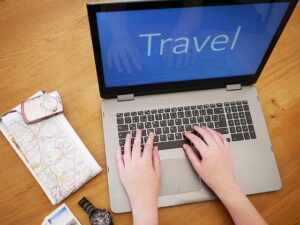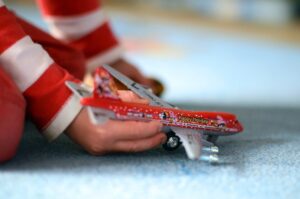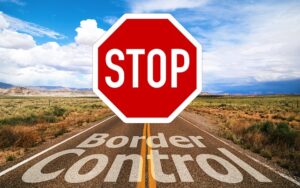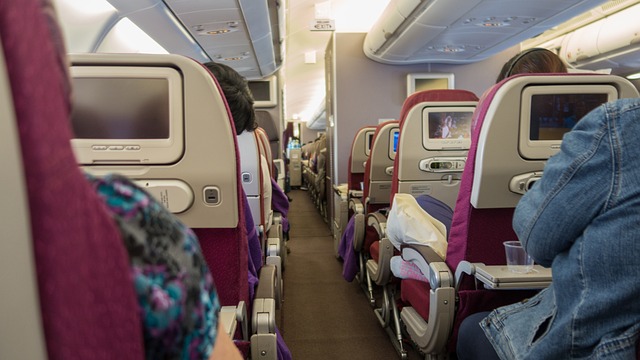When it comes to travelling, especially by air, taking precautions and planning ahead is key to ensuring a smooth journey. Here are some general travel tips that can come in handy during your next flight! We also have some advice on booking your flights, travel insurance and your time at the airport.
If you’ve got your own tips to share, we’d love to hear them! Simply submit them to us and we’ll happily include them on the page.
Booking your flight
We have information about Airlines that fly between Germany and South Africa, airports in Germany and tips for searching for flights that fit your needs. We also cover essential topics such as packing your luggage and choosing travel insurance.

General Travel tips – Booking Flights
This page is dedicated to helping you make the best choices when it comes to planning your travels. We have information about Airlines that fly
At the departing airport
- It’s essential to arrive at the airport well ahead of your scheduled departure time. This allows you to go through security checks without feeling rushed or stressed. For international flights, arrive at the airport at least 3 hours before departure, for local flights at least 2 hours.
- Wear comfortable shoes and clothing. Think casual but smart.
- Be prepared when you go through security, take off your watch, and your belt, and remove anything from your person that can set off the metal detectors. Think ahead and help the process go faster.
- When taking an international flight, your passport and visa/residence permit will be checked at the check-in gates. Know your final destination.
- Download an infographic and tips as a PDF file – Flying from South Africa
Comfortable on board
- To book the best seat, study the seat plans on Seatguru. Some bulkhead seats do not recline or have limited recline. Being close to the toilets can be bothersome. Some seats do not have a window and some have an entertainment box under the seat in front that can limit the space for your feet. Babies are usually seated in the middle row at the front of a bulkhead.
- Lufthansa offers the opportunity to bid for upgrades and depending on how full the flight is you can book a sleeper row, which costs much less than Premium Economy or Business class.
- If you have an issue with turbulence, book an early flight or sit in the middle of the plane over the wing.
- You can store your luggage in the overhead locker above you or underneath the seat in front of you. If you sit in an emergency exit row, you are not allowed to keep any bags on your person, everything must be stored in the overhead lockers.
- On most international flights, there is entertainment (movies, games, music) available at each seat. Check the airline’s website for up-to-date information.
- On most international flights you will get an Amenity kit. This can include a sleep mask, ear plugs, socks, lip balm, and a toothbrush and toothpaste. Check your airline for more details. I prefer to bring my own eye masks as the ones in the amenity kit are small and usually made from plastic which is not very comfortable.
- If there are air vents available above you, set them to blow lightly on you, this helps with travel nausea and also keeps germs away.
- If you have a fear of flying, discuss this with your medical practitioner, they can prescribe something to help you stay calm.
- If you suffer from vertigo or get nauseous during a flight, you can take travel sickness medication before take-off. Taking it once you are already feeling sick does not help that much. Have some medication with you to help against nausea as well. Discuss the use of medication with a health professional to make sure it is safe for you to use. Sucking on mints, sitting with your eyes closed or focusing on the horizon can maybe help you feel better. Avoid alcohol but drink plenty of water. Barf Bags are available in the seat pocket in front of you, and if not, ask the flight attendant for one
- Do not take any sleep medication before take-off. Your departure may be delayed or you sit for a long period on the tarmac. Discuss the use of medication with a health professional to make sure it is safe for you to use.
- The temperature inside the plane can become chilly, always take something warm with you if you are sensitive to cold.
- To keep your legs and feet from swelling, invest in a good pair of flight socks to wear during the flight.
- Get up and move at regular intervals if possible, You can walk around in the alley if it is safe to do so. Be considerate towards other passengers when walking around. Search online for exercises you can do while seated to help regulate your blood flow. This will also help against swollen legs and feet.
- Bring along wet wipes and tissues for those moments when you might need them.
- You will be served dinner and breakfast on overnight flights. For more information check on the airline’s website. Check on the airline website if you can pre-book special meals for example Vegan, Low fat etc.
- Drinks will be served, take note some airlines do not serve alcoholic drinks
- Smoking is not allowed on flights, there are smoking detectors all over the plane, as well as in the bathroom.
- You can take your shoes off and wear comfy socks, just be careful when going to the toilets, some people cannot aim, and you might step into something wet. The toilets are cleaned regularly though on most airlines.
- If you would like to brush your teeth and freshen up before landing, do so before breakfast, as everybody plans on doing it after breakfast and there are long queues. If that doesn’t bother you (it might be good to stand a while), then do it after breakfast.
- If you need assistance or something to drink, there is a button to call the flight attendant.
- It is common to get earache during departure or descent. If you do, invest in good quality air pressure-equalising earbuds, for example, the ones from Sanohra.
Travelling with children

Flying with Children
Flying with Children Travelling with small kids can be an amazing experience but also quite a task especially when it involves long flights. One of the key
Making your transit stress free
Transit is when you do not have a direct flight to your final destination but arrive at an airport and wait for your connecting flight to your final or next destination. Here are some tips to make it a stress-free experience
- Make sure you have enough time for transit. Take into account you will arrive, then go through security, then you have to find your departure gate, and all this in a foreign environment. Depending on your flight, you might also go through passport control. An example- you have a flight to Stuttgart via Frankfurt. You will go through passport control in Frankfurt.
- If you have a long layover, see if you can book space in a lounge, if not included in your ticket (Business or First) or frequent flyer status. If you do not want to book lounge access, research the airport beforehand to see what restaurants or services are available
- Most airports have free wi-fi. For more information see the airport website
- Most airports have smoking sections/booths. Smoking is not allowed at Amsterdam airport at all, you need to exit the airport and when you go back, you need to go through security again.
- Consider booking a meet and greet service at the transit airport. They offer various packages but most include a greet at your arrival gate, short security queues, and a motorised trip (on a small vehicle inside the building) to your departure gate. This is extremely helpful for first-time or elderly passengers.
- Organise wheelchair assistance well in advance when needed. Make sure you know what is included. Some only offer assistance to the departure gate, and nothing further. The person might need assistance with going to the toilets etc. See our section about Wheelchair assistance below.
- If you feel lost or do not know where you must go, find an info station or someone who works at the airport to assist you.
- You need to be at your departure gate at least 45 – 60 minutes before departure.
- If you travel to an EU country, you will go through passport control in the first Schengen airport you arrive in. If for instance, you fly with KLM to Frankfurt, you will do passport control in Amsterdam. If you fly to Frankfurt via Dubai for example, they will check your passport at your departure gate in Dubai, but only go through passport control in Frankfurt.
Wheelchair assistance
When you book wheelchair assistance you will be asked whether the person can walk on their own but only needs assistance at the airport or whether they need assistance with getting to and from their seat.
The service is organised by the airline, but performed by the relevant airport staff and the level of service might not be the same.
If the assisted person is travelling alone, the staff will take them through security and passport control and assist them with boarding the plane.
Assistance with deboarding is usually for when the person is not mobile at all.
Please make sure that assistance with going to the toilets is included if needed.
If the assisted person is travelling with someone, these persons will usually accompany the assisted person through security and passport control as well as boarding, although this is not always the case, especially if it is in a group. Discuss how this will be handled beforehand. From personal experience, this was not allowed at Stuttgart Airport, but allowed at Istanbul Airport, could be that we chose the wrong day 🙂
Arriving in Germany
- If you take a local Schengen area flight you do not need to go through passport control, unless they do special checks. If you arrive in a Schengen country from outside the EU you will go through passport control in your first Schengen airport of arrival.
- Keep your passport and flight ticket ready. If you are only visiting they will want to see your return ticket as well
- Airports in Germany have free Wi-Fi. Check on their websites beforehand to inform yourself about how to connect. Most are pretty straight-forward but sometimes you need to register or give your contact details to receive a pin
- At passport control, you will be asked some questions. Answer them and know your information for example where you will be staying, when you will return if relevant, who you are visiting etc. They might ask to see your return tickets. Tip If you have permanent residence in Germany, you can use the EU Passport queues at passport control.
- After passport control, you can collect your luggage if you are at your final airport. Follow the Luggage claim / Gepäckausgabe signs.
- If you are not at your final airport, follow the transit signs and go to your departure gate. Your luggage should be booked onto your next flight but please confirm this when you check in.
- If you bubble-wrapped your luggage, it might be a good idea to remove it before going through customs.
- Go through customs. If you have nothing to declare go through the green gate. If you need to declare items go through the red gate. See below for information about what you can bring to Germany.
- If you have people waiting for you, agree beforehand that you will be wearing for example a red scarf so that they can easily spot you.

What can I bring into Germany
It is very tempting to bring some South African goodies with you when you travel to Germany, and while most items are allowed, there are Restrictions.
When things go wrong
When your flight departs and arrives on time all goes smoothly and you have a relaxed experience. But what can you do when your flight is cancelled or delayed? How do you get through transit security when your connection time is tight?
Flight cancellations:
Flights can be cancelled due to many factors, for example, dangerous weather conditions, political situations or mechanical breakdowns. Many times the airline has no control over the cancellation decisions as they must adhere to airline and airspace safety regulations.
As a general rule, if you booked through an agency you have to contact them to make any changes to your booking. If you booked directly with the airline, you can contact them via their channels to assist you.
Tip – Follow the airline and airport on their social media accounts for up-to-date information. Also, make sure the airline has your contact details. If you are not getting prompt feedback from the airline, use their Twitter, FB or chatbot options. If your flight is cancelled you should get messages from the airline, where they ask you whether you want to cancel your flight or re-book it. If they have an app download it onto your mobile phone or tablet.
Tip – if you decide to cancel your flights, your contract with the airline ends, and you will get a refund depending on your ticket conditions. Also, if you cancel the flight, all passenger flights on this booking code will be cancelled.
Tip – Make sure who the operating airline is for example a Lufthansa flight operated by Swiss. In this case, you need to contact Swiss for any rebookings.
Flight delays or re-scheduled flights
Flights can be delayed due to many factors, for example, dangerous weather conditions, operational issues or mechanical breakdowns. Your contract with the airline is to bring you from point A to B. So they are allowed to rebook your flight to a partner airline, or on another date or timeslot. Again make sure they have your correct contact data. Check your flight details online on the airline’s site if you have access to it.
Missing your connecting flight
Always make sure you have enough time scheduled for transiting to your connecting flights. The minimum prescribed time is between 45 and 60 minutes, but this can be too little if you still have to go through security or passport control and walk to the other side of the airport. If one of your flight legs is delayed this can cause you to miss your connecting flight. At most airports, you can contact the personnel and explain your situation to them, and hopefully, they will assist you in jumping to the front of the security line or transporting you to the departure gate. If you do miss your flight due to delays, they have to rebook you on the next available flight. Go to the airline office as soon as you can and ask for assistance. Some airlines have connecting flight information on their entertainment systems. The flight attendants can also assist you with information. They are there to help, so ask for assistance. They might also make announcements about special arrangements for passengers with connecting flights.
Tip – keep your passport, onward flight ticket and flown flight ticket stub on your person so that you have it available when requiring assistance.
Problems on board
When your entertainment system is not working, you can mention it to the flight personnel but they are not obliged to move you to another seat. You can however in certain circumstances ask for compensation.
Unruly passengers might be handcuffed if they jeopardise the safety of the flight. If you have any unpleasant issues on board, you are welcome to talk to a flight attendant or contact the airline after arriving at your destination.
Delayed luggage
The airline does not handle the loading and unloading of luggage. This is usually done by external operators.
The Montreal Convention governs your baggage rights.
When your luggage is delayed you must go to the lost luggage counter or luggage tracing desk at the airport.
If you fly to or from the European Union, there are special rules protecting your passenger rights. See more information here – EU Passenger rights
Lorem ipsum dolor sit amet, consectetur adipiscing elit. Ut elit tellus, luctus nec ullamcorper mattis, pulvinar dapibus leo.
Tips from others
Jacqui shared her holiday prep tips with us:
For general travel comfort, I always add this to my list:
- I pack isotonic sachets to add to my water bottle
- I have a tiny spritzer bottle of lavender oil mixed with boiled water. I spray this on my big pashmina at bedtime. I also freshen up my feet with it

- I pack camomile teabags and order boiled water before bed.
- I cannot travel without my memory foam neck pillow.
- I remove makeup and apply a lot of cream and lip balm at bedtime. In the morning I spritz rose water onto my face.
- I take spa slippers along for a toilet run whilst wearing socks (if not provided by the airline)
- I wear shoes that’ll accommodate swollen feet after a long flight
- I do foot exercises to minimise swelling
- I have a teensy torch attached inside my backpack in case I need to hunt for melatonin tabs or tissues after lights out
- I only drink coffee in the morning and prefer little to no booze in-flight
- I hang onto the cheese and crackers as an emergency snack for later
- I keep scans and photos of all important documents, and flight tickets on my phone and email
- I have emergency numbers displayed on my phone’s screen lock
- I preload offline maps of the country I’m visiting and always carry a power bank or two as the maps suck battery life
- If the airports have water fountains, I fill up my big metal water bottle before I exit
- A backpack beats a handbag by far. Both hands are free and you can run a cable from your power bank.
- I always put a small combo lock on my backpack for in-flight and outdoors. It prevented my phone from being stolen on a Flixbus
- My passport and any cash remains on my person in a hidden money belt at all times.
- I always have a clean t-shirt, socks and jocks on board in case I feel sweaty or my luggage is delayed
- I buy the travel size aerosol deo and keep that in my liquids bag to freshen up the armpits

- I wear soft, breathable clothes and layers to compensate for temperature changes in the cabin
- For beach holidays, invest in a water bottle with a hidden compartment for some cash, so you can leave it on your towel.
- I use various clear pencil bags for grouped items on-board (cables and adapters for use of own headset/phone), a few basic makeup items for the morning in another, etc.
- I start to pack a week in advance and edit as I go. Mix and match outfits in practical colours and I check the weather report up until I depart as it keeps changing.
- I also pack travel laundry soap.
- Toiletries: I decant a bit but I leave most of it at home, buy there and abandon upon leaving (if suitcase weight is very limited)
Info on the web
Related content

Tourist accommodation types
Germany, known for its rich cultural heritage, stunning landscapes, and vibrant cities, offers a diverse range of accommodation options to suit every traveler’s needs. Here’s

Travel ideas within Germany
Germany is a beautiful country with diverse landscapes and many regional specialties.To add your suggestions please submit it via this form Below are some travel

Where can I travel with my SA passport
The general rule is that the entry requirements for a country are determined by your passport. Attention South African passport holders with a Schengen visa,



You must be logged in to post a comment.